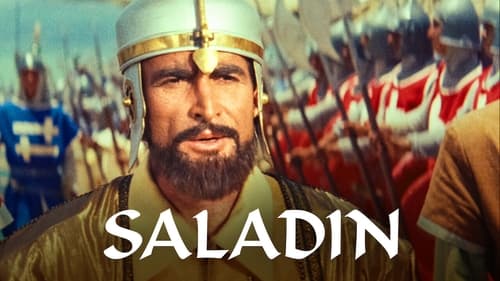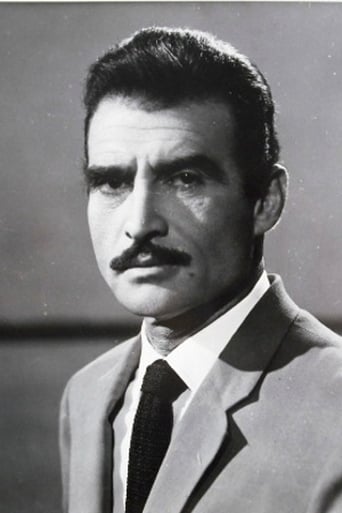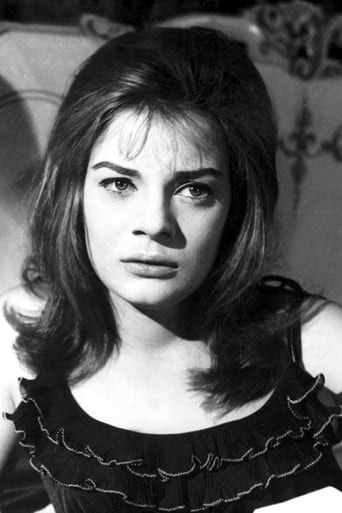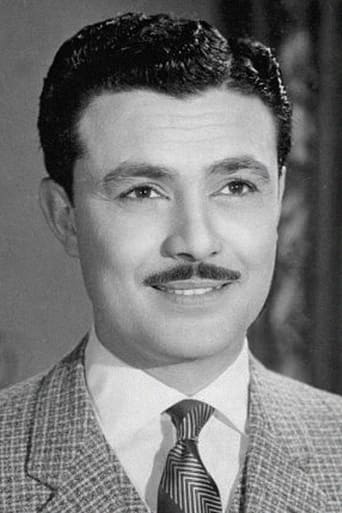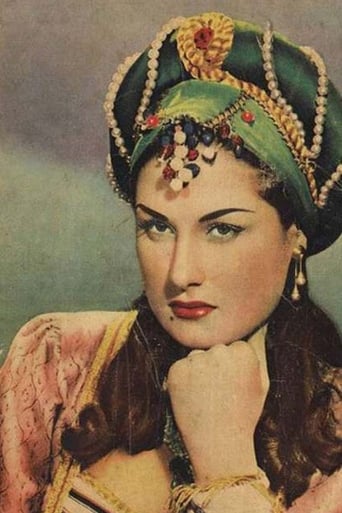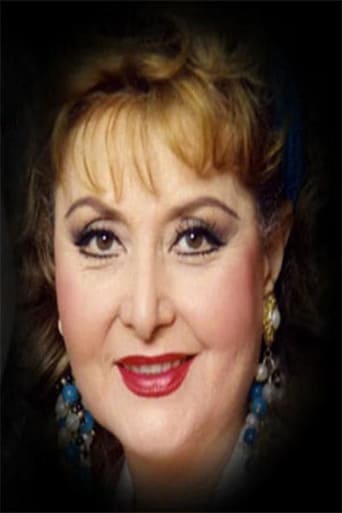DrMMGilchrist
'El Naser Salah el Dine' is a curious blend of Nasser-era pan-Arab nationalism with plot- elements and characterisations derived from the works of Walter Scott. It is not Islamist in approach: the fictional romantic hero, like the director and co-writer Youssef Chahine, is an Arab Christian, and is named 'Issa' - 'Joshua'/'Jesus' in Arabic. (He is played by Salah Zulfikar.) He is *very* loosely inspired by a historical 'Issa the Swimmer' - in the same way that Ridley Scott's 'Balian' is by the real one. (The name and one attribute are taken from history... and um, that's all! At least there's an excuse that less is known about Issa the Swimmer!) As he explains to the Frankish heroine, Louise de Lusignan (Nadia Lutfi), his loyalty is to his fellow-Arabs, across religious differences. Like 'Kingdom of Heaven' (2005), the film imposes a positive ideology of toleration and peaceful cross-cultural links, all very worthy in modern times, but *nothing* to do with 12C attitudes; in this case, it reflects a secular Arab nationalist ideology. It is never mentioned that Saladin was not an Arab, but a Kurd, and Issa claims, "Jerusalem has always been an Arab land". The depiction of the situation of the Arabs under Frankish rule is clearly intended to echo that of the modern Palestinians. Walter Scott-derived components, perhaps from Chahine's education at a British-run school, include the negative characterisation of Conrad of Montferrat, Louise being threatened with burning as a witch (straight out of 'Ivanhoe'), and Saladin, in person, tending Richard after he is shot with a poisoned arrow (from the 1954 Hollywood film adaptation of 'the Talisman', 'King Richard & the Crusaders', which this film resembles in some respects). As with Western historical films, there are numerous inaccuracies in fact and characterisation. Guy de Lusignan is depicted as a peaceable elderly man, who wants to negotiate with Saladin, but is over-ruled by Reynaud de Châtillon: he was actually probably in his late 30s, and quite reckless in the 1187 campaign. Reynaud is depicted as being killed in a duel with Saladin: he was, in fact, summarily executed. Richard I (Hamdi Geiss) receives remarkably favourable treatment, partly through the influence of Scott; also, I suspect, because the film may have an agenda of repairing links with the UK, post-Suez. Philippe Auguste (Omar El-Hariri), meanwhile, is depicted as a villain, and is shown giving the order for the massacre of the prisoners from Acre - when in reality he had already set off home to France. It was actually Richard who was responsible for the massacre. Again, I think this reflects contemporary (1963) anti-French sentiment because of the war in Algeria. The siege of Acre itself is depicted as "a picnic" for the Franks, aided by a treacherous Arab governor: in fact, it lasted for 2-3 years, with hard fighting and many deaths (including those of the Queen of Jerusalem and her daughters) from disease in the camp. The hostile characterisation of Conrad of Montferrat - in reality respected by his Muslim contemporaries as a tough warrior and an intelligent diplomat with whom they could negotiate - is Walter Scott-based: Mahmoud El-Meliguy plays him as scheming and treacherous, much as Josef Schildkraut did in Cecil B DeMille's 'The Crusades' (1935) and Michael Pate in 'King Richard & the Crusaders'. The female leads are both fictional, although one, the villainess (played by the voluptuous Leila Fawzi), is purportedly Reynaud de Châtillon's widow. She is named (surely ironically) Virginia, and depicted as bedding in turn all the movie villains - the treacherous governor of Acre, Philippe, Conrad, and the elderly Duke Arthur, Richard's fictional scheming adviser - in the hope of becoming Queen of Jerusalem! As is usual in the historical adventure genre - in Western films also - she pays a high price for her intrigues, although she seemed to me the most interesting character. Louise is a more conventional winsome romantic lead: again, as is typical in the genre, she is on the other side, but has to be persuaded of the superiority of the hero's cause, and won over. Less conventionally - and rather implausibly - both young women are depicted as donning mail and fighting in battle (although Louise gives this up, for fear of confronting her beloved Issa in action). Louise is, in fact, depicted as an officer of the Hospitallers! (While there were Hospitaller sisters, they were nurses, not fighting members of the Order, and as nuns, romantic involvements would not have been approved.)'El Naser Salah el Dine' is a very colourful film, and strikes me as a lightweight period adventure in much the same vein as DeMille's 'The Crusades' or 'King Richard & the Crusaders'. In the same way as DeMille, it tries to be portentous and 'deep', but isn't, and only the political baggage is different. The armour and costumes are no more authentic than in Hollywood, and the blond and auburn-wigged Arab actors as Franks are certainly no more or less odd to the eye than Rex Harrison in brown make-up as Saladin in 1954 Hollywood! (While both the leading ladies are attractive, the only really good-looking man in the film is Saladin, played by Ahmed Mazhar.) However, where this film has the edge is some interesting cinematography: use of stills-montage, and a very effective use of split-screen, evocative of mediæval manuscript painting, and cross-cutting during Louise's trial, to compare and contrast Saladin and Richard. What surprised me most about the film, though, is how little screen-time Saladin himself has: the intrigues of the Franks dominate the narrative, much as in the related Western films. This is unfortunate: the intrigues and battles of his own rise to power are fascinating, although would require a less reverential treatment than is customary with historical heroes in Arabic cinema.
tookus
Unfortunately the times when these great historic movies where done in Egypt are long gone. Elnaser Salah el-Dine is one of those rare movies that were made with these production values in the Arab world and in the hands of Youssef Chahine has became sort of a legendary film at least in where it came from. Despite the fact that it relatively flopped in theaters partly because of how huge the production is and how little the theaters these days in the Arab world can cause profit it became one of the most loved and respected movies and watched by everyone when aired on television. Historically it didn't bring everything about the hero, that's not why it was made.... it depicted a certain section in the history of the crusades without looking at the roots of the characters because there's only so much you can show in a limited time motion picture. Anyways, the movie showed the nobility of the leader, the power of his faith, his distinguished skill in warship, and most of all his human side. There's a real reason for why he is seen as one of history's legendary warriors in the east and such a respected figure in the west as well..The movie did him justice there, and didn't drift away from being very entertaining. Frankly not many movies or series in the middle east can make you feel the period that it's supposed to be in, but this one doesn't distract you in thinking about that manner because it seemed so real, the way it should be. And on the other hand Chahine being a Christian himself diminishes the idea of the movie being biased against Christianity. An amazing movie I enthusiastically recommend to anyone...
